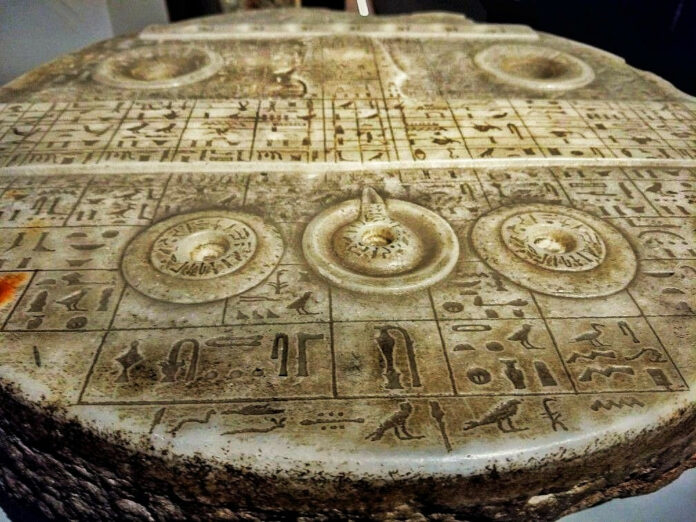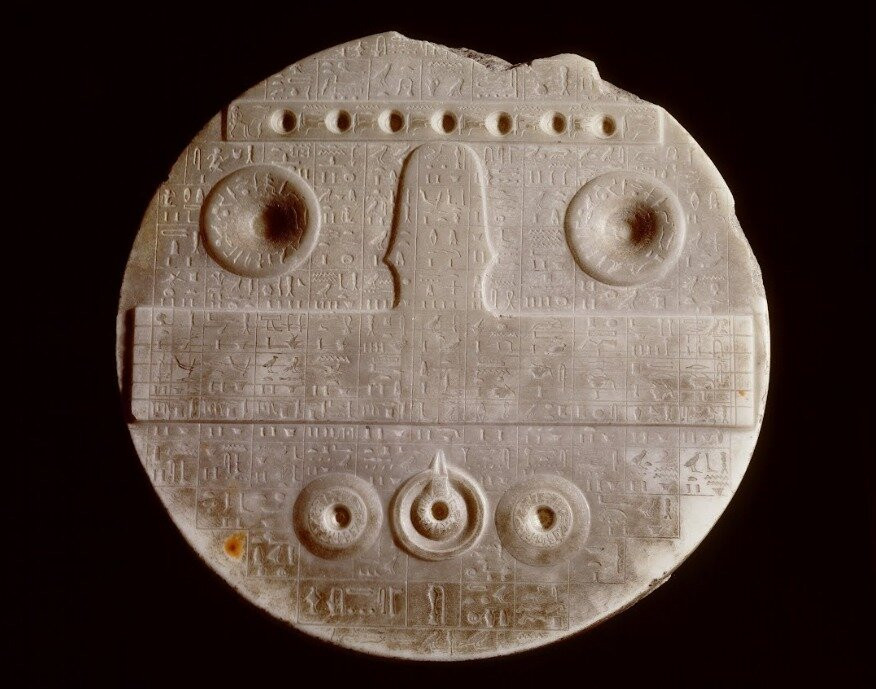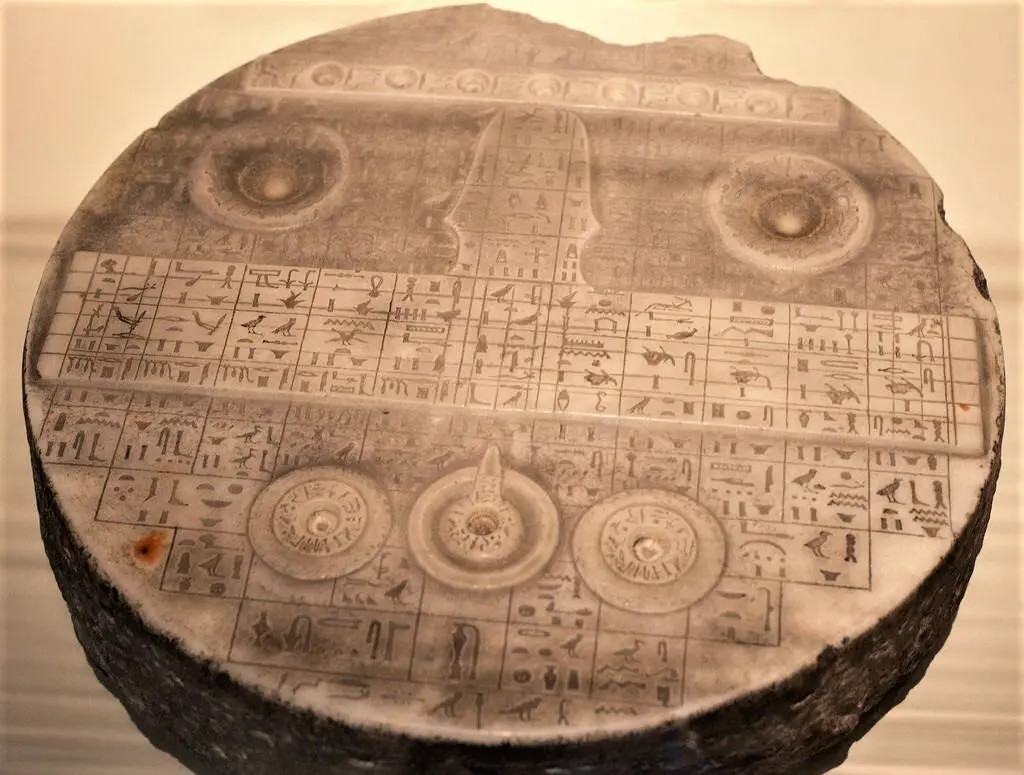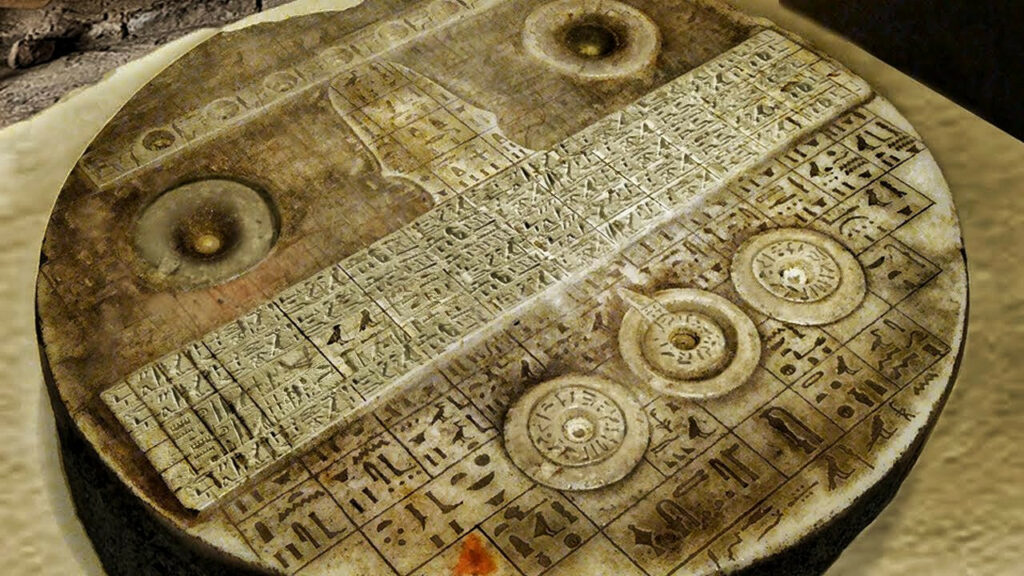The Captivating Circular Artifact
In the halls of the Leiden Museum of Antiquities in the Netherlands, an extraordinary piece of ancient Egyptian history stands as a testament to the ingenuity and spiritual devotion of its time. The round offering table of Defdji, dating back to 2200 BC, defies the conventional rectangular design of its counterparts, sparking fascination and intrigue among historians and visitors alike.

Unlike the typical offering tables found in ancient Egyptian tombs and temples, Defdji’s creation boasts a unique circular shape that has puzzled and captivated scholars for generations. This distinctive design, coupled with its intricately detailed surface, draws intriguing comparisons to modern aircraft control panels, bridging the gap between millennia of human innovation and technological advancement.
Defdji: A Man of Prominence
The man behind this remarkable artifact, Defdji, was no ordinary citizen. His elevated titles, including “Acquaintance of the King” and “Great One of Upper Egypt,” speak volumes about his prominent status within ancient Egyptian society. This alabaster masterpiece, therefore, serves not only as a ceremonial object but also as a tangible representation of Defdji’s esteemed position in the social hierarchy of his time.
A Feast for the Afterlife

The surface of Defdji’s offering table is a veritable cornucopia of ancient Egyptian offerings, with over ninety products meticulously labeled and arranged in compartments. This intricate design provides a captivating snapshot of the culinary and ceremonial practices of the era, offering a glimpse into the diverse array of dishes, drinks, and purifying agents that were considered essential for the afterlife.
The Sacred Seven
Perhaps the most intriguing feature of Defdji’s offering table is its top panel, which features seven shallow cavities, each designated for a specific sacred oil. These carefully labeled recesses offer invaluable insights into the anointing rituals and religious ceremonies that were integral to ancient Egyptian culture. From “festive ointment” to “top quality Libyan oil,” the table’s engraved labels paint a vivid picture of the importance placed on these sacred substances and the rituals associated with them.

A Window to the Past
As Defdji’s offering table sits in the Leiden Museum, it continues to captivate visitors and scholars alike. This 4,200-year-old artifact not only showcases the remarkable craftsmanship of ancient Egyptian artisans but also provides an invaluable window into the complex rituals, social structures, and spiritual beliefs that defined one of history’s most fascinating civilizations.
From its unusual circular shape to its meticulously detailed engravings, this priceless artifact invites us to marvel at the sophistication and ingenuity of ancient Egyptian culture. It stands as a testament to the enduring legacy of this remarkable civilization, and a reminder of the countless mysteries that still lie buried within the sands of time.
Conclusion

Defdji’s round offering table is a true marvel of ancient Egyptian artistry and a testament to the rich cultural heritage of this remarkable civilization. As visitors explore the halls of the Leiden Museum, they are transported back in time, captivated by the intricate details and the enigmatic story that this singular artifact has to tell.
Through the study and preservation of artifacts like Defdji’s offering table, we can continue to unravel the mysteries of the past and gain a deeper understanding of the ingenuity, spirituality, and social structures that defined the ancient Egyptian world. This priceless treasure serves as a bridge between the present and the distant past, inviting us to appreciate the enduring legacy of a civilization that continues to captivate and inspire us.

